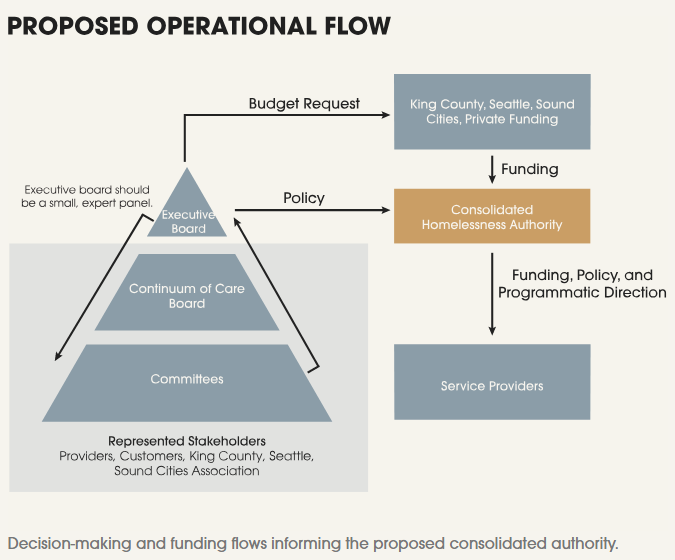#SpeakOutSeattle
I’m going to start this off with something that may cause me to lose favor with some on the political left in Seattle: I believe that candidates invited to the Speak Out Seattle forums/debates should participate.
Now that we have that out of the way, I’ll give you a moment to center yourself.
Why, you may ask, would I be supportive of these debates, particularly given my history with Safe Seattle, David Preston and Mike Arst’s group that functions eerily similar to a hate group (targeting folks experiencing homelessness with a dash of racism and pinch of misogyny)? It’s true that I wholeheartedly believe Safe Seattle and their progeny - The Burien Voice, Unified Seattle, and the Seattle Politics Page - are an anathema to civil discourse, evidence-based strategies, or any sort of liberalism. Take a stroll through any of their pages, and you’ll see consistent mocking of people living outdoors, elected officials, advocates for gender equity, all while embracing anti-tax rhetoric, referring to taxation as “theft,” embracing groups like Patriot Prayer and hate-leaders like Joey Gibson, and generally appearing to embrace Donald Trump and an ideology that perpetuates white supremacy and institutional racism.
It’s true that there is some troublesome crossover between Safe Seattle, Neighborhood Safety Alliance, and Speak Out Seattle. Hell, even their own members get them confused (notably Joe Kunzler, best known for living in Sedro Woolley, contributing to Republican politicians, and being extra creepy toward female politicians). During one of the community days that Councilmember Mosqueda did while I was on staff, David Preston came with a group from Speak Out Seattle, and proceeded to try to discreetly take pictures of me from across the room. SOS’s issues they brought: support for returning to safe lots for RV’s, and a desire to work with CM Mosqueda on an action plan around this area of apparent agreement.
In fact, following the EHT repeal in 2018, I was tasked with identifying potential other revenue options that could scale with regional supportive housing needs, as well as potential areas of common ground with opponents of the EHT. Many may recall that the most vocal opposition from residents not funded by more conservative business interests was Speak Out Seattle. From an early draft of a memo I wrote came this nugget:
In this, there were clear areas of alignment that I posited could provide an opening for broader conversations, and build a level of trust and identification of agreed facts to address concepts that I believe are not the best of ideas.
There is evidence that the folks who started Speak Out Seattle saw part of their organizing co-opted by the more extreme right-wing in our city. However, I truly believe that many folks who are part of this loose-knit organization are people who are frustrated with the lack of focus, direction, or progress of our region when it comes to addressing homelessness. I respect that. And while we can point to all of the data that we want that disproves assumptions about crime, addiction, and perceived correlations with homelessness, many on the left have failed to acknowledge that some people feel unsafe. In my many years doing community outreach on the issue, I’ve found many who feel unsafe admit that their feelings are not based on actual things that have happened, but they feel it all the same. Facts and data aren’t going to change that.
To date, it appears to me that Speak Out Seattle has effectively distanced itself from Safe Seattle and its progeny, appearing to recognize that David Preston and Mike Arst aren’t interested in solutions. That’s an admirable path to take.
As to whether candidate should participate in Speak Out Seattle forums: as stated above, I believe they should, and I believe it’s an opportunity for not only constructive dialogue, but for all of us to hear how candidates respond to questions posed. Back in 2015, I went to every forum to which I was invited, and spoke to every group that asked. I even appeared before the 46th District Republicans. Throughout all of it, I made the same case that I made everywhere else. I stuck to the same values, because that’s who I am.
After seeing some of the District 1 forum, I believe there is opportunity for candidates to hear what people are seeing and believe, and acknowledge where people are. In turn, there’s an opportunity to hear that, to respond with what data and anecdotes candidates have, and to commit to long-term investment strategies that will not only improve the lives of those living outdoors, especially those classified as “hardest to house,” but to be transparent with the public in the process. I know as much as I do about costs associated with supportive housing, subsidized housing, incarceration, treatment, and so on, because I worked on the inside. Most people don’t have that information readily available.
Ultimately, I expect that were Speak Out Seattle and I to come to agreement on some basic facts, there would be areas where we would just disagree. But I also believe (I have to believe) that where there is transparency, where government shows its work, and where we see that work suggests more cost-effective strategies that bring people indoors, and that can begin to chip away at a feeling of being unsafe - regardless of what that fear is rooted in - we move forward more quickly on actually implementing sustainable solutions that we can all celebrate the results of. I don’t believe that begins by refusing to participate, but rather it begins by refusing to change values and messaging.




